A decade of social movements
The Express Tribune looks at five social movements that caused ripples across the globe in the last 10 years
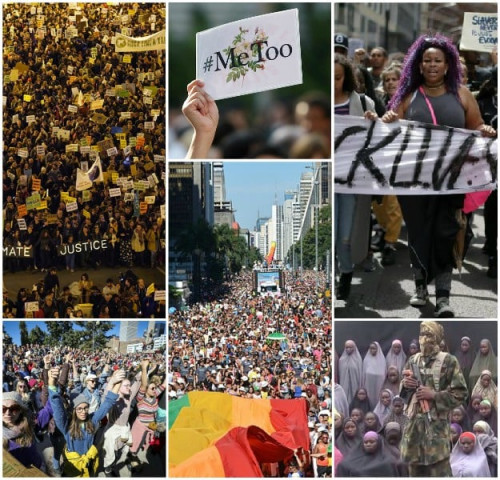
A decade of social movements
 The past decade was dominated by an overwhelming number of social movements that saw the world come together to fight for a cause.
The past decade was dominated by an overwhelming number of social movements that saw the world come together to fight for a cause.From equal rights and gender disparity to tackling decades-old issues of girl education and coming face to face with the impact of climate change - the 2010s were quiet happening, to say the least.
The social media played a drastic role in influencing the campaigns and movements globally - for now, reaching out to a bigger audience and mobilising support was on the tip of our fingers.
It wasn't a surprise that the biggest movements stemmed from the cyber world and made it to the streets, forcing authorities concerned to act.
The Express Tribune looks at five social movements that caused ripples across the globe in the past decade.
Climate change
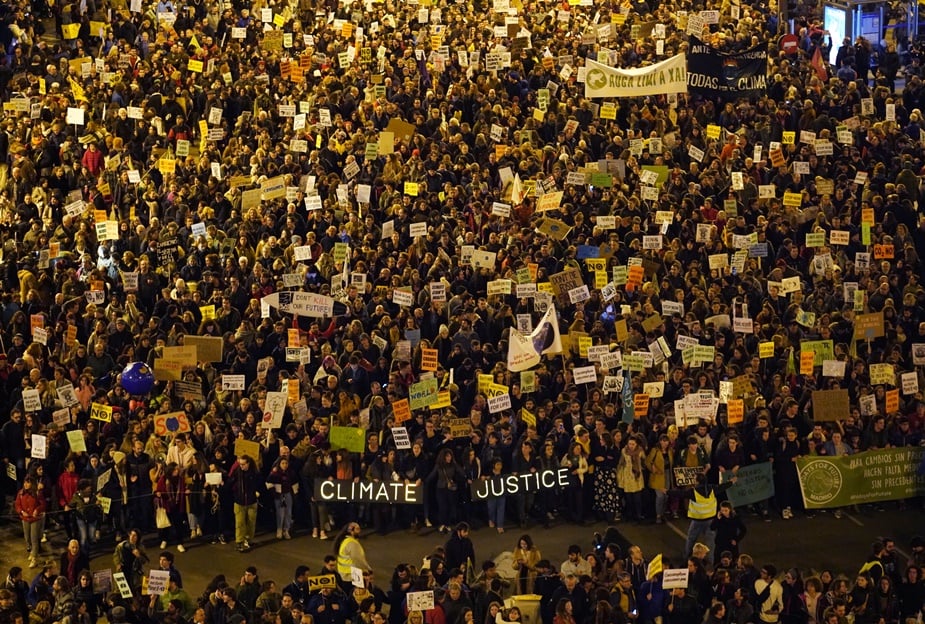 People attend a climate change protest march, as COP25 climate summit is held in Madrid, Spain, December 6, 2019. PHOTO: REUTERS
People attend a climate change protest march, as COP25 climate summit is held in Madrid, Spain, December 6, 2019. PHOTO: REUTERSThe biggest social movement that continues to dominate the political landscape is the debate over climate change.
Despite governments' world over hesitating to take up the daunting task to address climate change, common people from across the world have come together to force their countries to play a more active role in curbing global warming.
In a landmark move, parties to the United Nations Framework Convention on Climate Change signed an agreement to combat climate change and to accelerate and intensify actions and investments needed for a sustainable low carbon future.
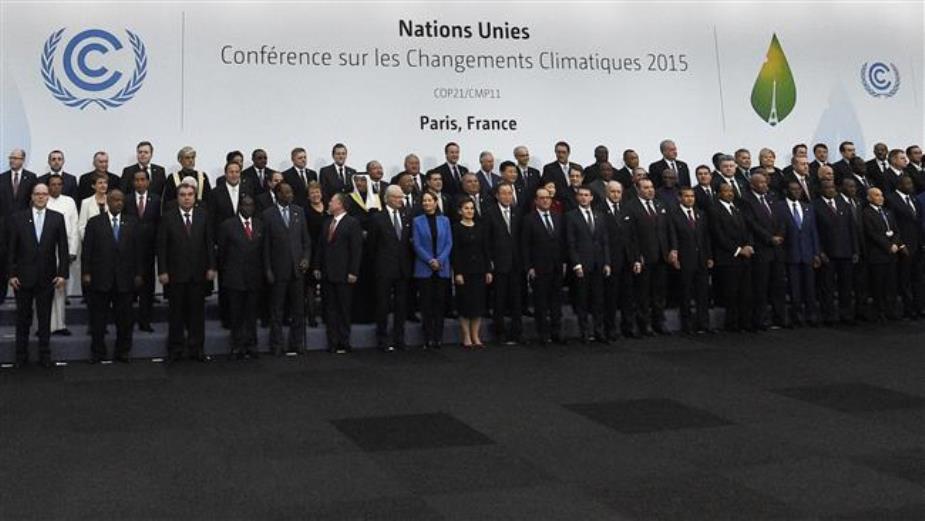
In 2015, the Paris Agreement brought together all nations to undertake ambitious efforts to combat climate change and adapt to its effects, with enhanced support to assist developing countries to do so.
The Paris Agreement opened for signature on 22 April 2016 – Earth Day – at UN Headquarters in New York. It entered into force on 4 November 2016 and since then, 187 parties have ratified 197 parties to the Convention.
Though the agreement addressed crucial areas necessary to combat climate change, the Convention was marred by halfhearted efforts of countries to implement the Paris Agreement.
The cause was furthered by an 18-year-old environmental activist, Greta Thunberg who initiated a movement by skipping school in protest and sitting outside the Swedish Parliament demanding stronger action against global warming.
In late 2018, Thunberg began the school climate strikes and public speeches for which she has become an internationally recognised climate activist.
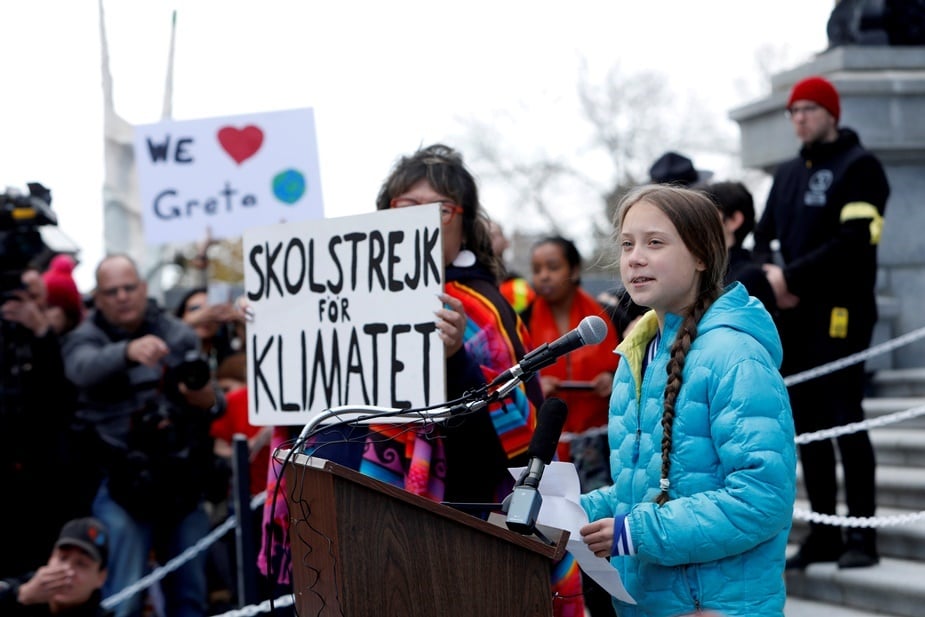 FILE PHOTO: Swedish climate change teen activist Greta Thunberg speaks during a climate strike at the Alberta Legislature in Edmonton, Alberta, Canada. PHOTO: REUTERS
FILE PHOTO: Swedish climate change teen activist Greta Thunberg speaks during a climate strike at the Alberta Legislature in Edmonton, Alberta, Canada. PHOTO: REUTERSThunberg later went on to criticise world leaders for their “betrayal” of young people in a fiery speech at the United Nations in September 2019. She called out world leaders for ‘failing’ the coming generations, simultaneously urging activists to arrange protests worldwide.
The teenage environmentalist later spoke at the United Nations Climate Change Conference COP25 in Madrid and accused world leaders of running a “creative PR” campaign but failing to effectively take climate change.
#MeToo #TimeisUp
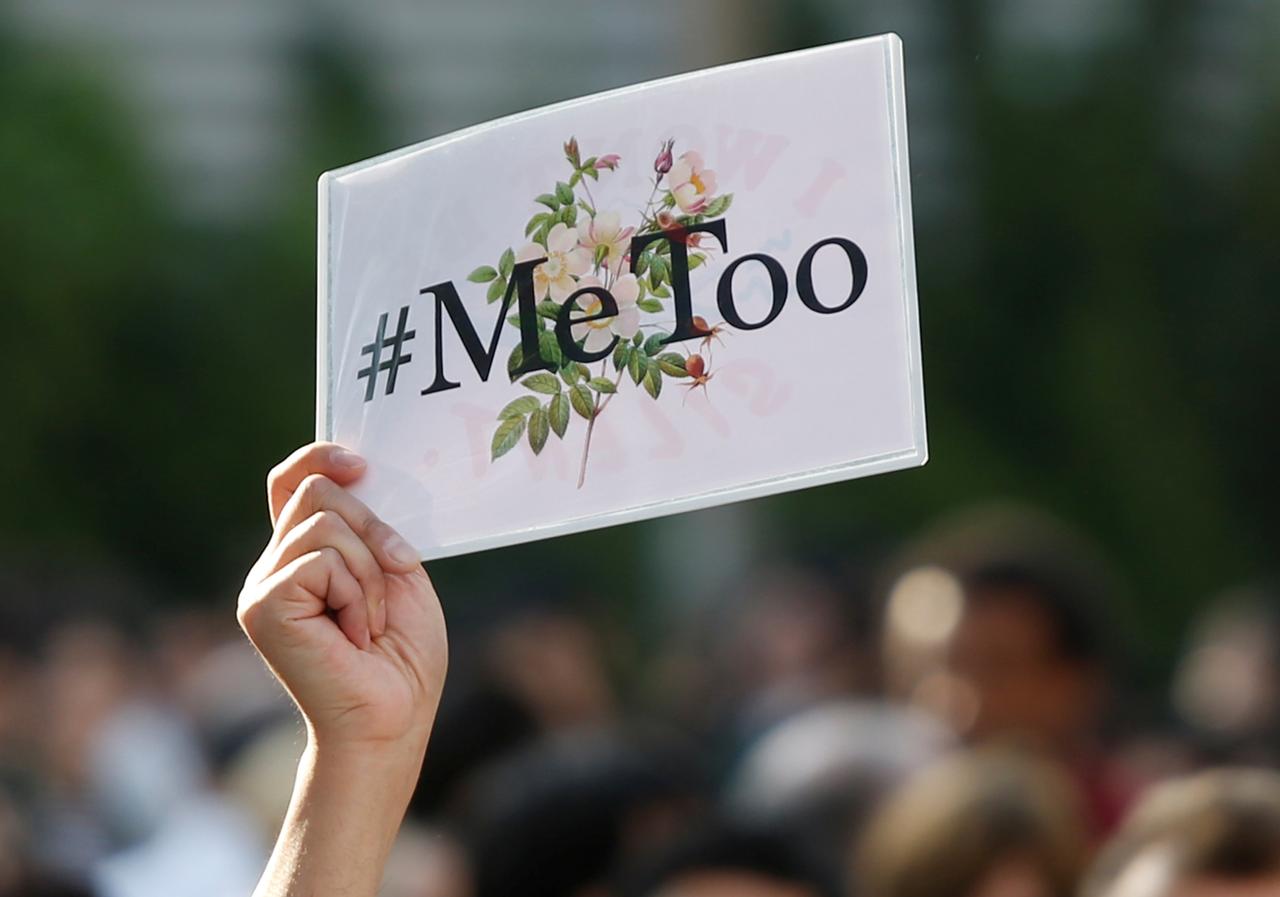 PHOTO: REUTERS
PHOTO: REUTERSThe phrase Me Too was originally coined in 2006 on social media by Tarana Burke to help survivors of sexual violence, particularly black women and girls, and other young women of colour from low wealth communities.
But the movement rose to prominence as a hashtag in 2017 following widespread sexual-abuse allegations against Harvey Weinstein.
In October the same year, American actress Alyssa Milano tweeted that to give people a sense of the magnitude of the problem all women should use #Metoo as a status.
https://twitter.com/Alyssa_Milano/status/919659438700670976
A number of high-profile posts and responses from American celebrities Gwyneth Paltrow, Ashley Judd, Jennifer Lawrence and Uma Thurman, among others, soon followed opening gates to media coverage and discussion of sexual harassment.
The talks led to high-profile firings, particularly in Hollywood, as well as criticism and backlash.
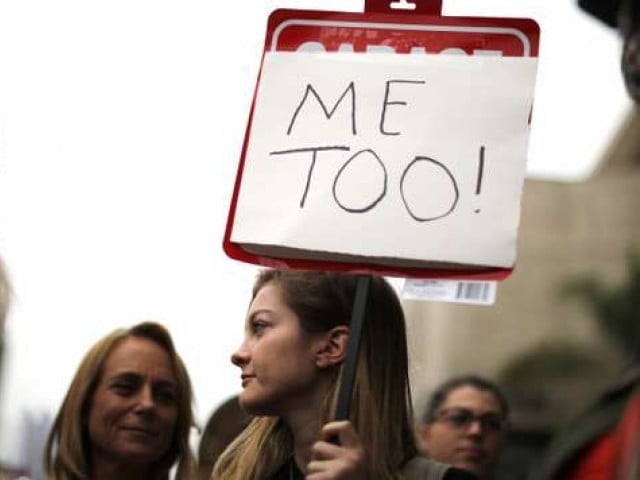 People participate in a 'MeToo' protest march for survivors of sexual assault and their supporters in Hollywood, Los Angeles, California, PHOTO: REUTERS
People participate in a 'MeToo' protest march for survivors of sexual assault and their supporters in Hollywood, Los Angeles, California, PHOTO: REUTERSThe hashtag was soon used by millions of people and spread to dozens of other languages.
The movement gained pace in Pakistan with the likes of Frieha Altaf, designer Maheem Khan and Meesha Shafi coming forward with their stories of sexual abuse, and challenged Pakistan to be more proactive at stopping children from getting raped.
The latest person to have come forward was film-maker Jami who broke the silence and in a series of tweets recalled how he was ‘raped’ by a Pakistani media industry bigwig and the trauma that followed.
Jami’s came forward following the suicide of a college professor on alleged claims of harassment against him.
LGBT Rights
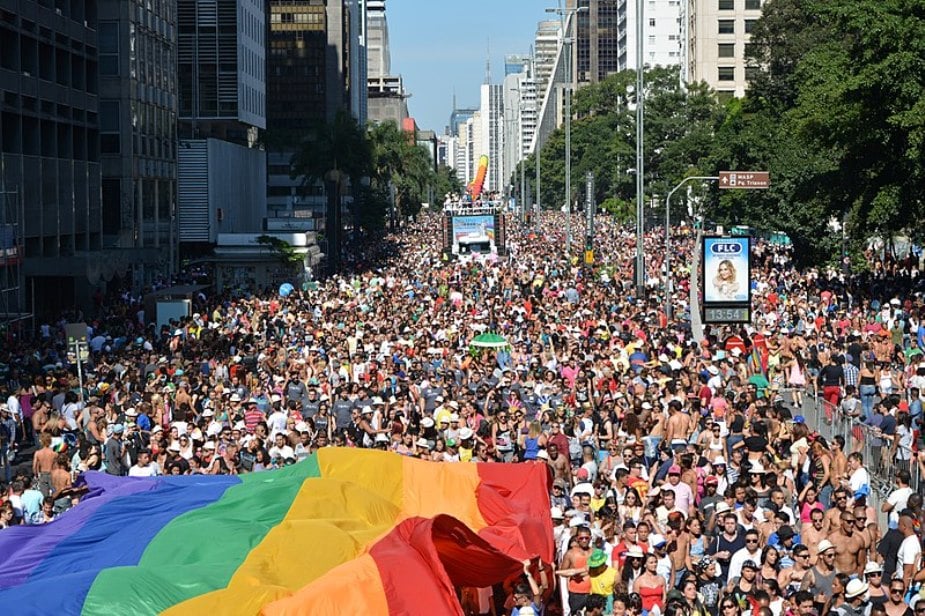 PHOTO COURTESY: Brazil Photo Press
PHOTO COURTESY: Brazil Photo PressThe gay rights movement has seen huge progress in the last century, and especially in the past decade.
Laws prohibiting homosexual activity have been struck down; a ban on same-sex couple adoption was lifted in parts of the world. Moreover, many countries across the globe allowed transgender and gays to join militaries.
The first-ever legal gay pride parade was held in 2010 Saint Petersburg, Russia.
Guinness World Records recognised transgender man Thomas Beatie as the world's "First Married Man to Give Birth".
Former US president Barack Obama became the first US president to publicly announce support for same-sex marriage on May 9. He also became the first president to have mentioned the word ‘gay’ and the issue of their rights for the first time in a speech at the US presidential swearing-in.
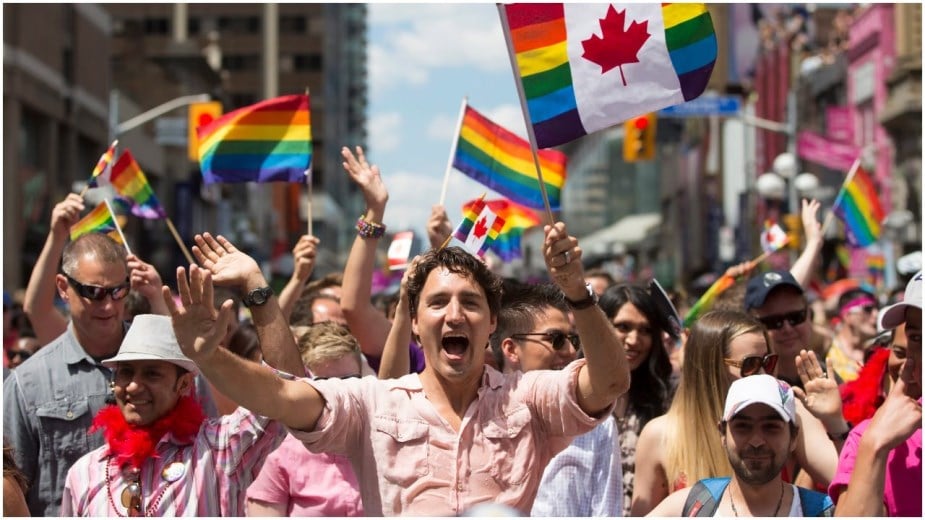
In 2014, UN Human Rights Council adopted a second resolution related to sexual orientation and gender identity. It passed by a vote of 25-14 and was the first time in the council's history that it adopted a resolution on LGBT rights with the majority of its members.
Later in 2019, Donald Trump became the first US President to have celebrated the Pride Month. The governors of New York, Michigan, Wisconsin, Colorado, and California flew the LGBT pride flag from their state capitals or governor's office buildings for the first time during LGBT Pride Month.
Black lives matter
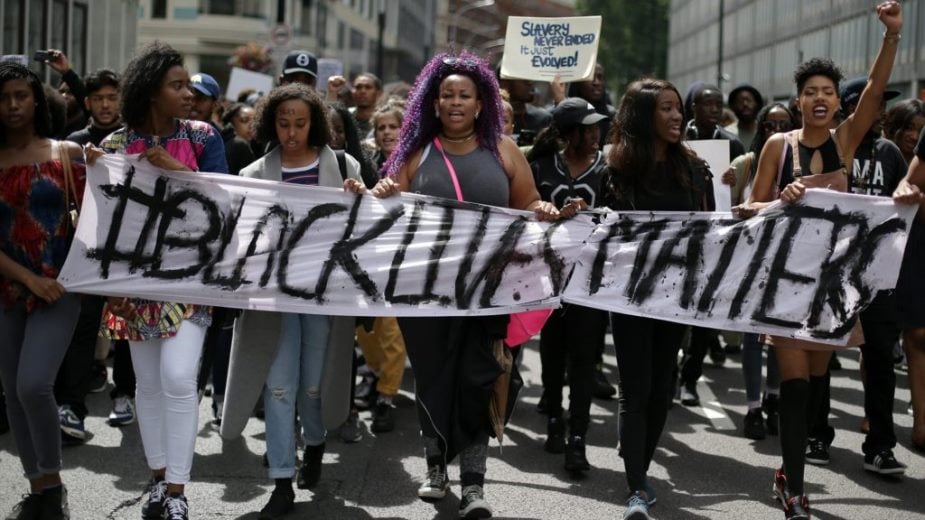
Often also known as the new civil rights movement, the Black Lives Matter movement campaigned against violence and systemic racism towards black people.
The movement’s activists regularly held protests speaking out against police killings of black people, and broader issues such as racial profiling, police brutality, and racial inequality in the United States criminal justice system.
The event that became a flashpoint for the movement was the 2013 acquittal of George Zimmerman in the shooting death of African-American teen Trayvon Martin in February 2012.
The movement became nationally recognized for street demonstrations following the 2014 deaths of two African Americans: Michael Brown—resulting in protests and unrest in Ferguson, a city near St. Louis—and Eric Garner in New York City.
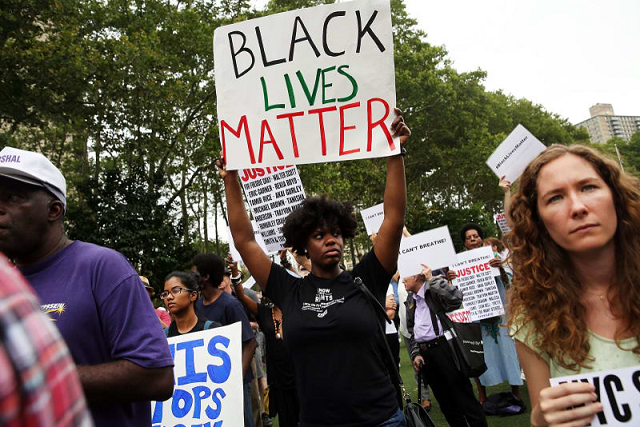 PHOTO: AFP
PHOTO: AFPSince the Ferguson protests, participants in the movement have demonstrated against the deaths of numerous other African Americans by police actions or while in police custody.
In the summer of 2015, Black Lives Matter activists became involved in the 2016 United States presidential election. The originators of the hashtag and call to action, Alicia Garza, Patrisse Cullors, and Opal Tometi, expanded their project into a national network of over 30 local chapters between 2014 and 2016.
The overall Black Lives Matter movement, however, is a decentralised network and has no formal hierarchy.
Bring Back our Girls
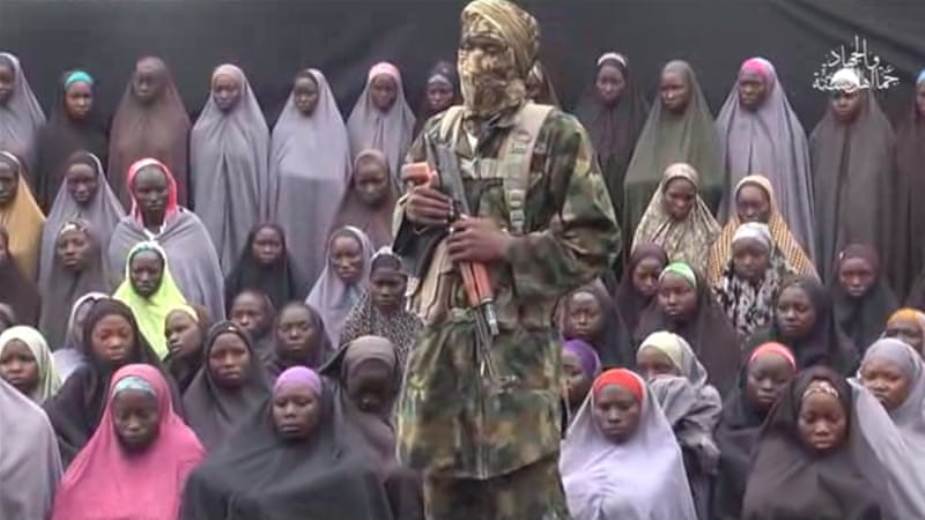
One of the most powerful yet so easily forgotten campaigns in the past decade has been for the Chibok girls.
Boko Haram militants ransacked a government school in Chibok in northeast Nigeria in April 2014 and kidnapped 276 girls from the hostel who were preparing for their examinations.
The group, whose name roughly translates to ‘western education is forbidden’, launched an armed insurgency in Nigeria in 2009, following the death of its founder Mohammed Yusuf in police custody.
The group is known to regularly attack civilian targets—including schools and churches—in a bid to rid northern Nigeria of what it perceived as a Western influence.
The kidnapping of Chibok girls sparked international outcry forcing that then US first lady Michelle Obama to come forward and support the cause.
World leaders and celebrities supported the social media campaign entitled #BringBackOurGirls. Ex-British Prime Minister David Cameron and Malala Yousafzai were among those to lend their support to the campaign.
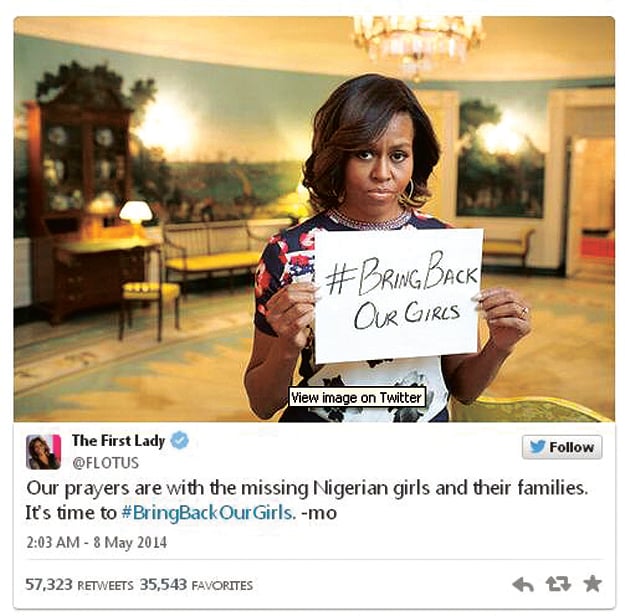
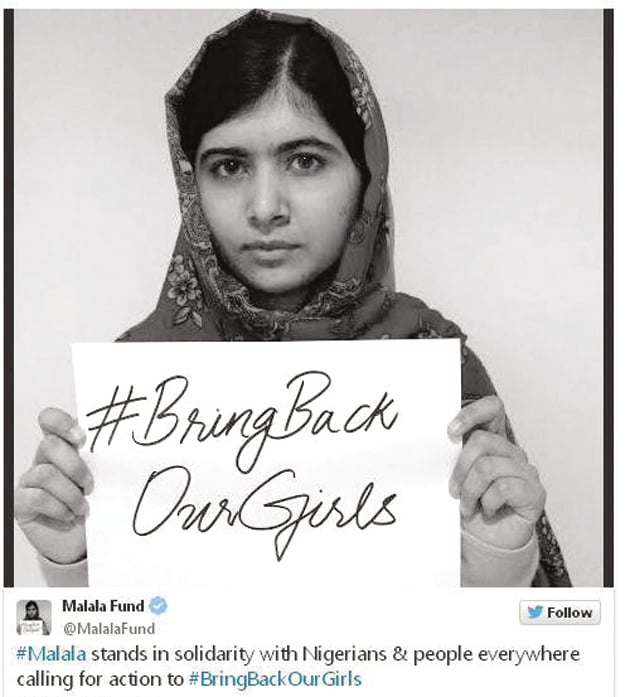
As of now out of the 276 girls kidnapped, 57 escaped while 107 were released later. As many as 112 girls are still missing with no word on their whereabouts.



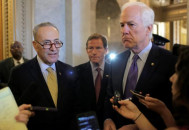
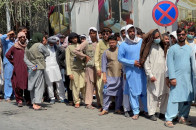
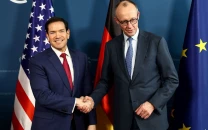
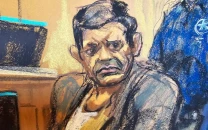












COMMENTS
Comments are moderated and generally will be posted if they are on-topic and not abusive.
For more information, please see our Comments FAQ